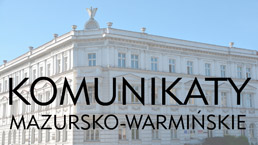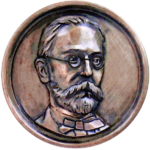Current issue
Online first
Special issues
Archive
About the Journal
Editorial Board
Editorial Council
Reviewers
Editorial guidelines
Publication ethics
Guidelines for reviewing
Remarks on “ghostwriting”
Copyrights and Open Access rule
GDPR Privacy Notice – for the authors of articles sent for publication in the "Komunikaty Mazursko-Warmińskie ("Masuro-Warmian Bulletin")
Contact
Price list
“We need to investigate people from all possible sides”...
Online publication date: 2020-05-20
Publication date: 2020-05-20
KMW 2020;307(1):121-146
KEYWORDS
TOPICS
ABSTRACT
The paper discusses the execution of the laws of the 3rd Plenum of the Central Committee of the Polish United Workers’ Party (KC PZPR) (11–13 November 1949) in terms of verifying its members on the example of Julian Sekita (1897–1989) – a lawyer with pre–war experience in the judiciary – the first President of Regional Court in Olsztyn in the years 1945–1949. From the viewpoint of particular Party members or candidates that were affected by the cleansing of ranks, both the content of the accusations and the mechanism of deciding on their exclusion were crucial. Depriving someone of the Party card while the totalitarian state was being built often meant losing their professional standing and actual elimination from the broadly understood public sphere. In practice, it led to defensive mechanisms among the excluded, such as appeals to Party instances directly superior to the basic organisations. Eventually, the decisions on approving, changing or repealing the punishments belonged to voivodeship–level Party control committees. It was a crucial issue, especially for those Party members who faced charges of ideological nature that situated them in the category of class enemies.
Share
RELATED ARTICLE
We process personal data collected when visiting the website. The function of obtaining information about users and their behavior is carried out by voluntarily entered information in forms and saving cookies in end devices. Data, including cookies, are used to provide services, improve the user experience and to analyze the traffic in accordance with the Privacy policy. Data are also collected and processed by Google Analytics tool (more).
You can change cookies settings in your browser. Restricted use of cookies in the browser configuration may affect some functionalities of the website.
You can change cookies settings in your browser. Restricted use of cookies in the browser configuration may affect some functionalities of the website.




